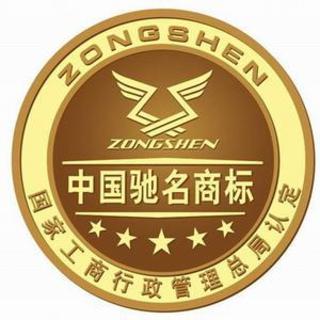
介绍:
China remains world's largest trademark holder
Chinese authorities say the country continues to top the world in the number of trademarks registered.
Data from the commerce authority show the number of valid trademarks registered in China totaled 7.6 million by the end of June.
The authority received over 14 million trademark applications as of June.
China has led the world in the number of trademark applications since 2002.
The country's revised Trademark Law went into effect in May to streamline registration procedures and improve protection.
McDonald's to boost China supplier audits after food safety scandal
Fast food chain McDonald's says it will increase the number of audits it conducts on suppliers in China.
A food scandal in July has dented China sales at the U.S. company.
The restaurant chain says half of the audits will be done unannounced and will be carried out by third party auditors and internal teams.
Industry insiders say suppliers in China often know about audits in advance.
McDonald's adds it will push for more video monitoring at its Chinese suppliers and send more quality control specialists to all meat production facilities.
Evergrande set to agriculture-related businesses
Guangzhou-based real estate giant Evergrande Group says it's now tapping into the agricultural market.
It has launched three subsidiary companies in Arshaan, Inner Mongolia, mainly engaged in the fields of grain and oil, dairy and animal husbandry.
Liu Yongzhuo, vice-president of the group, says that by diversifying the business, they are aiming to become one of the world's top 500 companies next year.
Evergrande will invest over 16 billion US dollars in the agricultural sector in the next few years.
FTA Trilateral underway in Beijing
Anchor:
Tax reduction in the commodity sector has become a key issue as representatives from China, Japan, and the Republic of Korea continue their fifth round of Free Trade Agreement negotiations in Beijing.
Our Reporter Liu Yan has more.
Reporter:
Negotiators from the three countries have called for the conclusion of a comprehensive trilateral free trade agreement by the end of 2015.
Wang Shouwen, assistant minister of China's Ministry of Commerce, stresses that more efforts are needed to promote the negotiations.
The negotiations cover very comprehensive areas, including commodities, service, investment, and copyright protection. It's a package of policies and should be seen as a whole. We'll spend more efforts to get progress on these issues."
The three countries launched trilateral FTA negotiations in November 2012. The pact aims to eliminate tariffs, import quotas, and preferences on most goods and services traded among the three nations.
China's representatives say the three countries are actively promoting the signing of the FTA, but they haven't given a timetable.
Wang emphasizes the quality of talks. He believes the goal is to achieve a comprehensive outcome and they can't speed up the talk by sacrificing quality.
"But negotiations are hard to predict. We all have very good intentions to speed up, but we must reach a high-level and comprehensive pact. We will not sacrifice quality for speed, because quality is very important."
China, Japan and South Korea are major economies in East Asia with a combined population of over 1.5 billion people.
Estimates show the trilateral deal will help raise China and South Korea's economic growth by up to 3 percentage points, and Japan by half a percentage point.
For CRI, I'm Liu Yan.
China's Chongqing starts importing vehicles by train
The first vehicles to be imported to China by rail have arrived in the southwest city of Chongqing.
And with that, the country's only international rail vehicle port has begun operations.
The municipal government's port office says eighty imported vehicles from Germany arrived through the Chongqing-Xinjiang-Duisburg international railway.
The vehicle import project was approved by the central government in July.
The vehicles will be sold in the southwestern, eastern and southern markets.
Guangzhou firm forges Australian link for senior living venture
Guangzhou City Construction Institute has signed an agreement with Australian Independent Management Group to forge a strategic alliance.
The president of the Guangzhou Institute says the two sides will share expertise in planning, designing and servicing related to "senior living."
He adds the senior living industry has huge potential in China.
The elderly need public services that are supported by related government policies and growing personal wealth.
Microsoft gets 20 days to explain
Microsoft has been given 20-days by Chinese authorities to better-explain its sales strategy for its Windows and Office products in China.
Microsoft has been accused of violating China's anti-monopoly laws for its Windows operating system and Office software.
The investigation was launched last year after complaints by companies that Microsoft used tie-in sales and verification codes in its Windows operating system and Microsoft Office software programs.
Authorities contend this violates Chinese law.
US chip designer Qualcomm and German automaker Mercedes-Benz are also facing similar anti-monopoly investigations.
大家还在听

